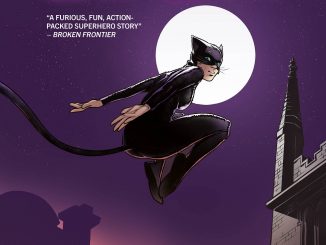Bleeding Cool has talked about the issue of Watchmen and V For Vendetta rights never reverting to their creators, as originally agreed they would, because DC Comics has kept the books in print for twenty-five years, something unimagebale at the time..
Of course since then a number of creators have signed that same – or similar – contract, happy for their book to stay at DC as long as it stayed in print. And if it went out of print, they’d be able to transfer the rights to another publisher if they wished. See Major Bummer, Terminal City and the like. The creators can keep making money, one way or the other.
And then digital happened. And while some creators are wondering when they’ll be getting royalties from backlist sales through DC’s new online initiatives, there’s a potentially much bigger question, one with big repercussions throughout the comics industry.
In the digital age, when do rights revert to creators?
There is a cost for keeping books in print. Warehousing mostly, as well as supplying copies. For the less popular books, there is less incentive to keep a book in print as each copy sold makes less profit than a copy of a more popular book, because of economies of scale.
And at some point, the company can decide enough is enough, liquidate the stock or choose not to reprint it when it eventually runs out. A little while later, the rights can revert to the creators. Who may find a new way to exploit it.
But in digital comics, the incremental cost of keeping books in print is zero. They can remain perpetually in print, digitally, even if the printed books have long gone.
So what do the contracts say? I understand the language is unclear. But let’s take, say, Mark Waid and Barry Kitson’s Empire. It’s been out of print for a while, selling for $30 on Amazon. It’s by a hot creative team. It is not available digitally. Yet.
Could a book like that be the test case for whether or not DC lets creators they used to like, have their property back, even in a digital age?
DC… all together now… declined to comment.




